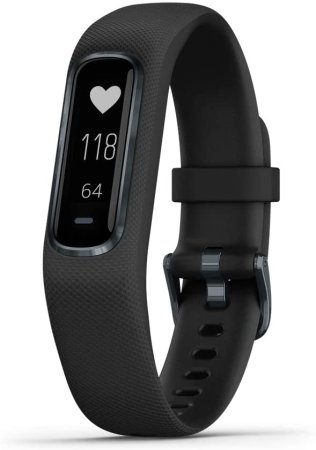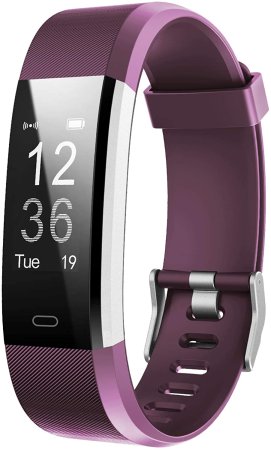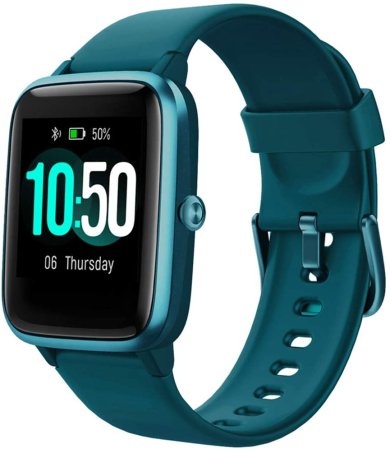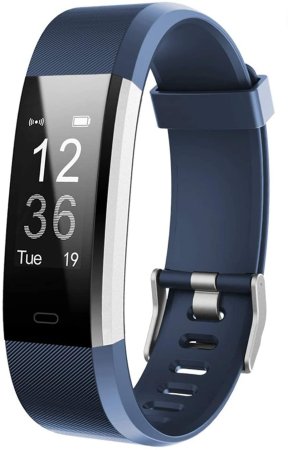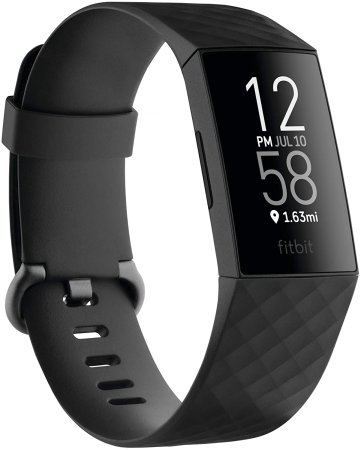

We may earn revenue from the products available on this page and participate in affiliate programs.
Even after just a few weeks without regular training, you might be shocked to see that your hard work appears for naught. When there’s no early morning runs and drills taking you to the edge, it can be easy to rest on your laurels. Fitness isn’t permanent — it takes continuous work. If you want to be able to pull off a run like George MacKay in 1917, or even just crush your next round of PT, you’re going to have to keep up the cardio. But how can you tell if you’re getting the job done? Instead of putting a finger to your pulse and timing out heartbeats, most modern trainers prefer fitness trackers. Measuring everything from distance to calories to heart rate, these watch-like devices take the mystery out of exercise. Of course, that relies on you finding the right fit for your workout style — something accurate, comfortable, and tough.
To help you track down the best fitness trackers around, we’ve compiled a list of the most reliable options. Let’s take a look.
Garmin vivosmart 4
Letscom fitness tracker hr
Yamay fitness tracker
Lintelek fitness tracker
Fitbit charge 4 fitness tracker
Related: 8 pieces of fitness equipment you need in your gym bag
Why should you trust us
With five years of product review experience, paired with three years as a news correspondent, I’ve developed a reputation for accuracy and reliability. Focusing mainly on outdoor gear, survival supplies, and automotive products, I draw on my sciences education to objectively assess items’ merit. My work is featured on The Drive, Narcity Media, and Car Bibles. Some of my recent pieces for Task and Purpose include reviews of compression socks, hiking watches, and gym bags. Exercise is easiest with the proper workout gear, and these reviews cut through the noise, so you can workout more efficiently.
Types of fitness trackers
Basic tracking model
The idea of fitness tracking is not new: In fact, the technology seriously took hold in American culture in the mid-1960s, meaning U.S. troops during the Vietnam War had access to the tools. Of course, those basic tracking models were far simpler. Still available on the market, these trackers simply measured steps taken, which helped set exercise targets with an established metric. While useful, this type is largely obsolete now since the tech is also found in other fitness tracker types.
Heart rate tracking
A popular type of fitness tracker for those in the field, the heart rate tracking device assesses your heart rate during exercise. The tracker determines your resting heart rate and begins recording a workout automatically once your pulse accelerates. Analyzing your pulse gives you a more accurate heart rate read than you could otherwise do by putting your fingers on an artery. Because of the limited amount of metrics, the batteries tend to last for a longer amount of time than more lightweight or nuanced models.
Fitness tracking with GPS
Representing the most modern type of fitness trackers, these connect to your smartphone and have a whole suite of advanced features. This type of tracker is capable of tracking your location, mapping a route, and reading more advanced physical metrics including oxygen saturation and sleep quality. In order to get the full value from this type of fitness tracker, it is important to wear them during both the day and the night. Recharging via USB, these trackers usually last for up to a week, though that time decreases substantially if the GPS feature is engaged.
Key features of fitness trackers
Wristband
In order to measure things like steps and heart rate, the tracker must be worn near a major artery like the one inside your wrist. As a result, trackers usually double as watches. So as to avoid damage from perspiration, most wristbands are usually made out of silicon. While reasonably flexible, silicon isn’t the most forgiving material, and it’s important to check the size of the wristband relative to your arm to ensure that it will fit properly.
Display
This component of the fitness tracker is necessary to its function, particularly for longer exercises. While modern trackers connect to smartphones, those readouts are only relevant once you are done exercising. During the workout, the display is necessary to keep you informed of your exercise status. Many LCD displays are waterproof (usually up to 50 feet when submerged) and show both the time, charge remaining, and calendar date as the default setting.
Battery
This is an essential component, especially for GPS fitness trackers. Behind the display is a rechargeable battery that connects via either standard or micro USB. Due to the small size, most fitness trackers recharge within hours. A quality option will last for a full week of continuous use. The battery life drains more quickly when the GPS system is engaged.
Fitness metrics
Perhaps the most important feature of fitness trackers is the metrics that they can read. The trackers will have multiple settings, letting you assign different physical characteristics to unique types of exercise. Most trackers register steps, calories, distance (via GPS), and heart rate. Advanced models will use these measurements, coupled with your breathing, to determine oxygen saturation, sleep cycle, and REM quality.
Benefits of fitness trackers
By virtue of tracking your exercise statistics, the tracker is designed to encourage you to work out. Many let you set goals and relay notifications upon success. It might not be a drill sergeant, but a good fitness tracker can be the next best thing.
Instead of measuring only your steps or calories, a good tracker will assess everything from heart rate to distance travelled. This feature can help you see exercise from different angles, offering a better perspective on success. Trackers come with multiple exercise settings, often over a dozen. This way, you can determine whether you are more successful when weight lifting, swimming, or running laps. By continuously giving you feedback on your biorhythms, you can more easily enhance the actual quality of your exercise. If you want to get your heart rate to 125 and keep it there for five minutes, it is easier to achieve with a tracker instead of continually measuring your pulse. In addition to measuring your workouts, most trackers also read your sleep quality. By learning how different types of exercise correlate to improved REM sleep, you can get better rest more consistently.
There are other, more practical benefits of fitness trackers. By connecting to your smart devices, fitness trackers will enable you to take calls, send text messages, and stay apprised of your calendar engagements. This way, you don’t have to abandon obligations in pursuit of exercise. Finally, it also doubles as a watch: After all, wearing two watches just isn’t practical, so it helps that a fitness tracker doubles as one. Any chance for an accessory to be practical is a good thing, and fitness trackers live up to that demand.
Fitness tracker pricing
- Under $50: You can find a lot of fitness trackers in this price range, though most are fairly basic and are less likely to be waterproof.
- Between $50 and $100: The majority of fitness trackers fall in this category, most having advanced features, multiple metrics, and long battery life.
- Over $100: In this range, you are likely to find name brand models that connect to a proprietary app. It’s only viable if you plan to pay for and use the associated smartphone application.
How we chose our top picks
Exercise has a whole host of health benefits, and monitoring your progress makes reaching goals much easier. By first looking at the technology used in fitness trackers, we gained insight on what the most important features are. We tracked down the best fitness trackers, aiming for comfort, ease of use, and the amount of monitoring features. Shortlisting the top candidates, we found the options that best balance affordability and benefits. Factoring in user reviews, the reputation of the brand, and the overall design, we finalized our top picks. The result is a series of high-quality fitness trackers designed to help you hit your workout goals.
